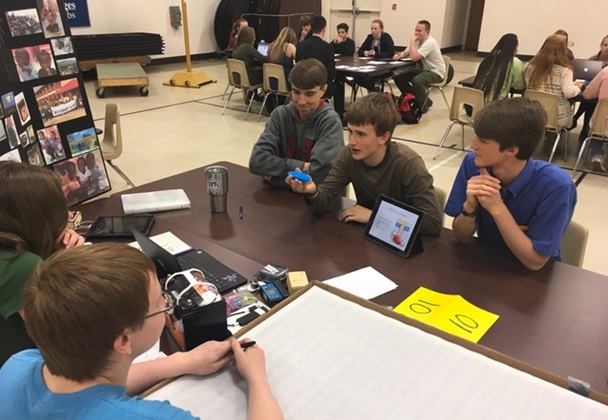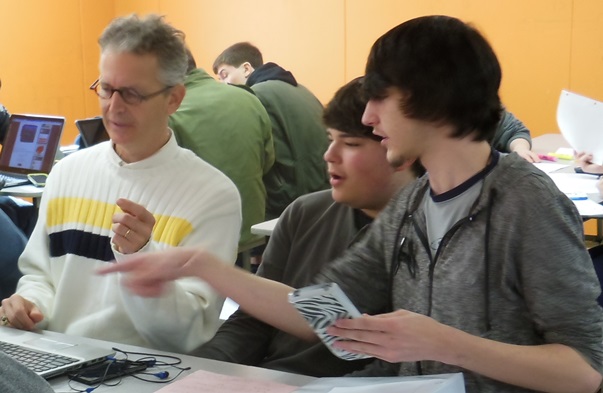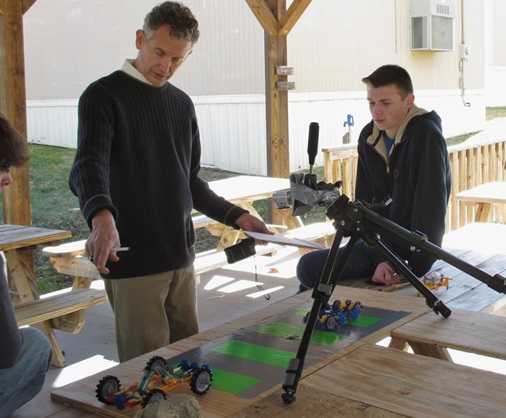Acquiring and utilizing 21st century skills while learning complex mathematical and/or science concepts is nothing foreign to Ben Owens’ students at Tri County Early College. From physics lab equipment (e.g. Pasco probeware) that takes measurements and connects via Bluetooth to student iPads, to embedding technology into grading, sharing and organizing work, communication, collaboration, and feedback, students are exposed to curriculum and learning activities that are challenging, engaging and relevant.
Mr. Owens says that he does “not use technology, simply for the sake us using technology”. This is critical as technology begins to flood our schools and classrooms. The key is finding opportunities to incorporate technology to enhance and transform learning in ways that would not be possible without the utilization of technology. Tri County Early College is a 1:1 school, where each student is issued an iPad. In Mr. Owens’ class, students use their iPads or personal devices to access information and to gain more control of their own learning. Additionally, course materials, grading and feedback is provided by using Google add-on’s and extension tools such as Goobric and Doctopus.

“I essentially have a policy where my students are encouraged to bring me the latest gold nugget app, platform, or tech tool they have found that helps them do their work better. We test it out and if it works, I try to see about getting multiple licenses for other students who want it.”
“The key point of turning over control [of learning] is something that creates a “whatever it takes to succeed” culture in the students.”
-Ben Owens
Student choice and individual contribution to learning and the learning of others helps to develop student centered and controlled learning. This is important when learning and examining mathematics and physics, as this helps to develop inquiry, critical thinking, and problem-solving abilities. In additional to developing autonomous learners, Mr. Owens focuses on using technology to help students to better understand complex and abstract mathematical and scientific concepts. This is accomplished via a combination of hands on and visual learning, which is supplemented with meaningful and relevant tech-tools.


Below is a list of books, websites and tech tools that Mr. Owens recommends:
- UnCommon Learning: Creating Schools That Work for Kids 1st Edition by: Eric C. Sheninger
- LearnPlatform– evaluated educations apps to help teachers to determine if an app is appropriate for their and their students use.
- TodaysMeet and Twijector for online collaboration
- Babbl.us, lino, and Padlet for concept maps, outlining and graphic organizers
- GeoGebra– online visual calculator, FunctionCarnival– videos with corresponding graphical models
- MasteryConnect-Curriculum maps, assessments, grading, rubrics, and more


Ben Owens is a high school teacher at Tri-County Early College. He teaches both Physics and Mathematics. He was recently the recipient of the Distinguished Teaching Award in STEM Education by the The North Carolina Association for Biomedical Research.

